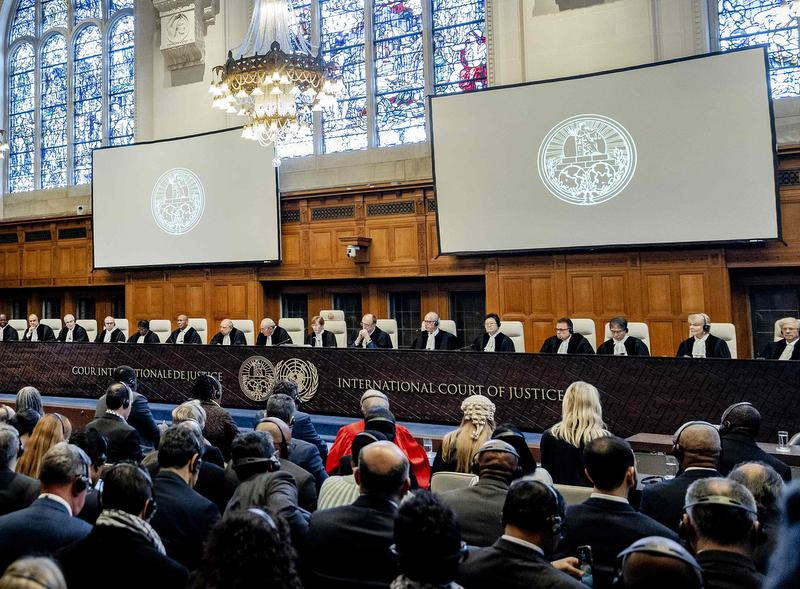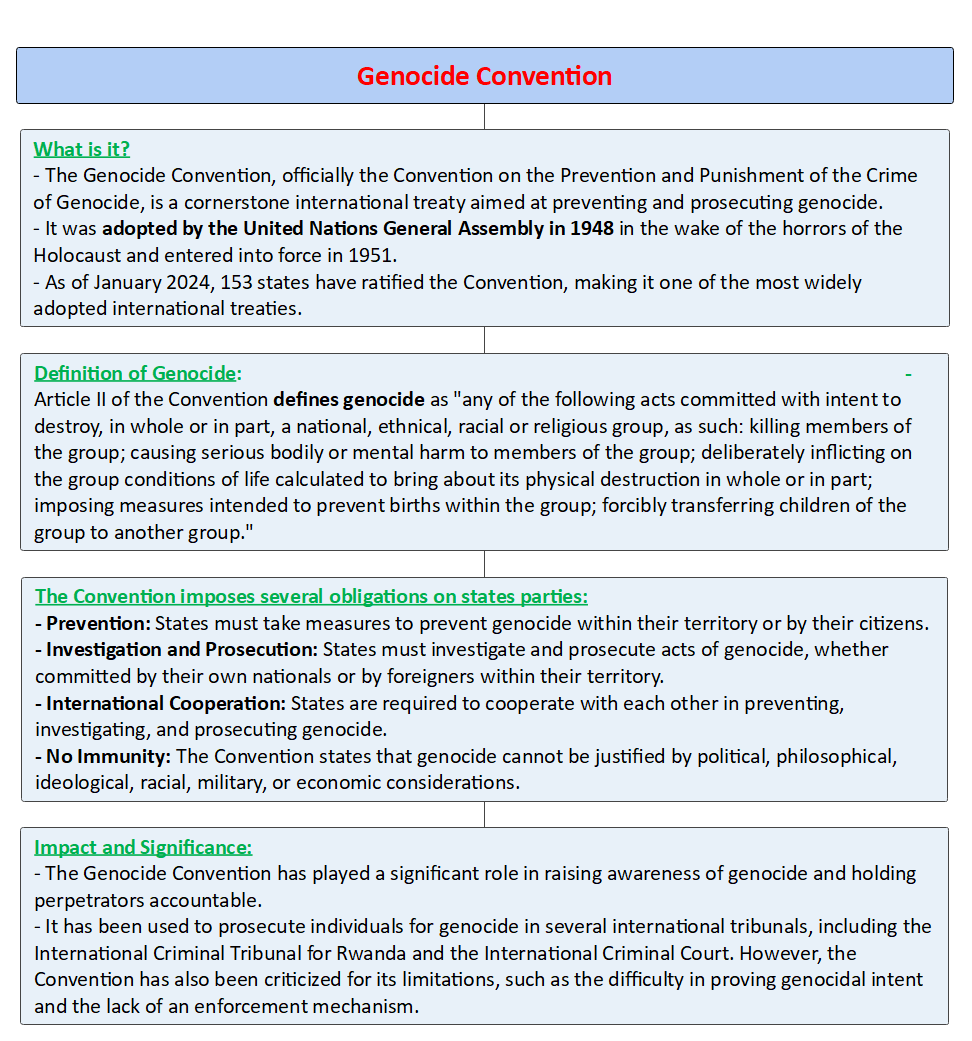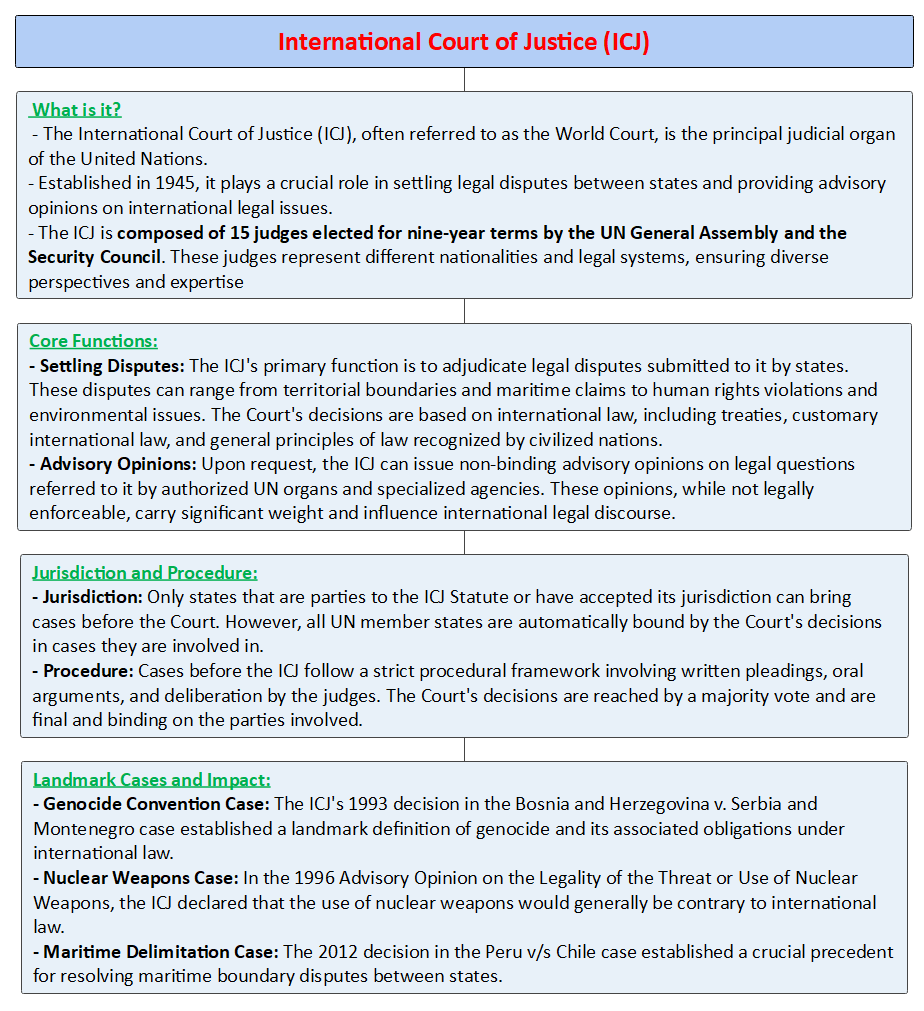Free Courses Sale ends Soon, Get It Now


Free Courses Sale ends Soon, Get It Now



Copyright infringement not intended
Picture Courtesy: THE HINDU
Context: South Africa filed a case against Israel at the International Court of Justice (ICJ) accusing it of committing genocide against Palestinians in Gaza. The ICJ issued a provisional ruling, meaning it's not a final verdict but imposes temporary measures while the case continues.
Details
|
The ICJ's decision is based on the Genocide Convention, ratified by both South Africa and Israel. Any state party to the convention can bring a case against another state in the ICJ, even if not directly involved in the conflict, due to the peremptory norm of international law regarding the prohibition of genocide. |
|
Note: India had actively participated in the formulation of the Genocide Convention and ratified it in 1959. Despite the ratification, India is yet to define genocide by law. |
South Africa move against Israel

Basis for the ruling
Provisional measures ordered by the International Court of Justice (ICJ)
What next?

Must Read Articles:
ISRAEL HAMAS CONFLICT: https://www.iasgyan.in/daily-current-affairs/israel-hamas-conflict#:~:text=Israel%20and%20Egypt%20maintain%20tight,such%20as%20food%20and%20water.
|
PRACTICE QUESTION Q. Analyze the role of external actors, such as regional powers and international organizations, in shaping the dynamics of the Israel-Palestine conflict. How have their interventions impacted the pursuit of a sustainable resolution? |
© 2024 iasgyan. All right reserved